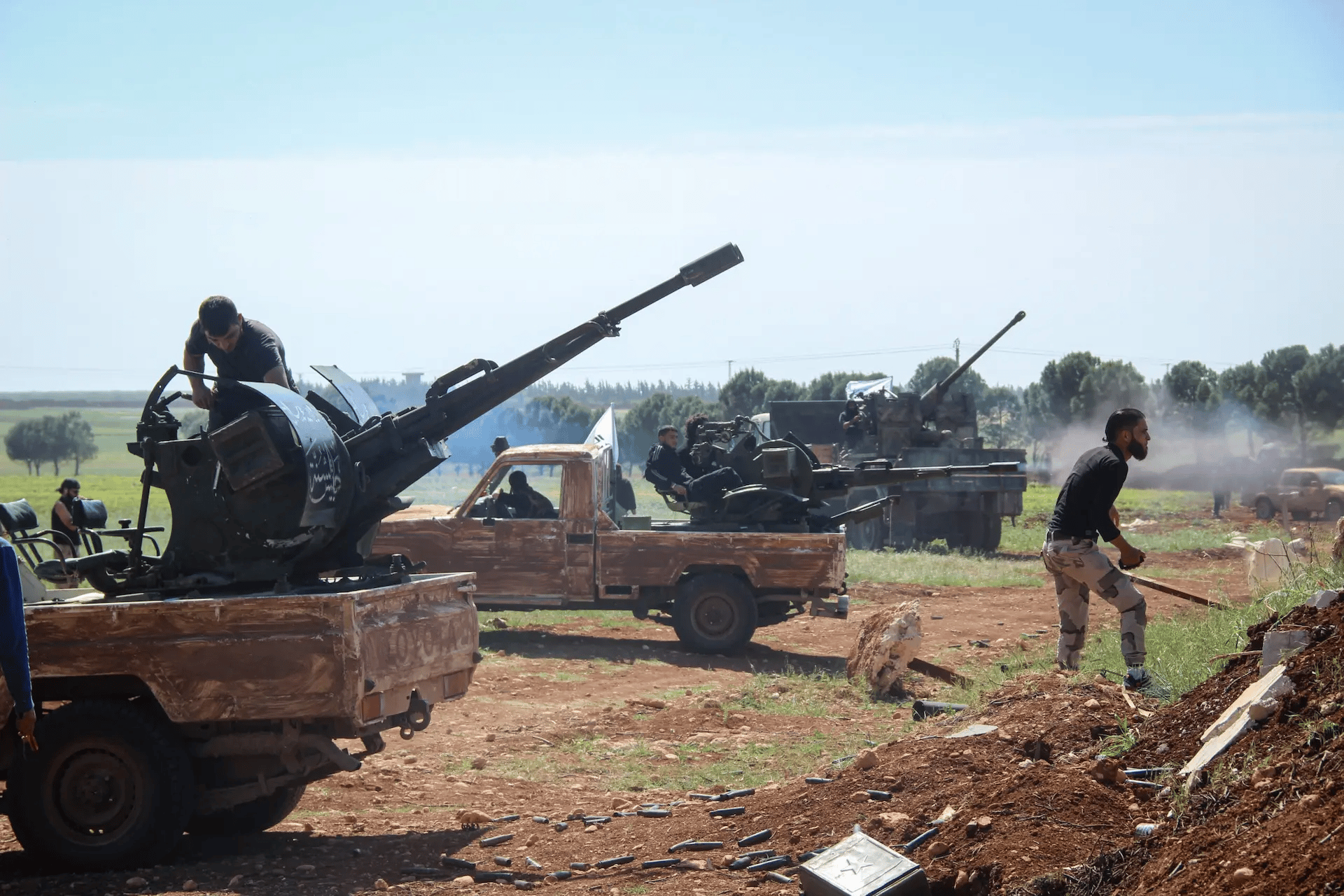Netanyahu holds urgent meeting amid concerns over Syrian rebels development
Benjamin Netanyahu holds urgent meeting to discuss developments as Syrian rebels make rapid gains
Israeli officials are expressing alarm over the rapid advances made by rebel forces in Syria, with some suggesting that the collapse of President Bashar al-Assad's regime has become a plausible scenario. In response to these developments, Prime Minister Benjamin Netanyahu convened an urgent meeting on Thursday with top defense officials to discuss the escalating situation.

The decision to hold the meeting comes after rebel forces seized control of Hama, Syria’s fifth-largest city, raising concerns that the Assad regime may be on the brink of collapse. Two senior Israeli officials told Axios that Israeli intelligence was caught off guard by the speed of the Syrian army's retreat, with one official stating that the fall of Damascus now seems more likely than it had previously appeared.
While Israeli officials do not believe the Assad regime is in immediate danger, they acknowledge that this is the most significant challenge the regime has faced in the last decade. "The Syrian military forces are not really fighting," one official remarked, pointing to the apparent disintegration of Assad’s defense in the face of the rebel advance.
Israel now finds itself in a delicate position regarding the potential outcomes of the ongoing conflict. On one hand, many of the rebel groups advancing against Assad’s forces hold radical Islamist ideologies, with some being designated as terrorist organizations by the U.S. and other countries. On the other hand, the Assad regime is heavily supported by Iran, which Israel views as a significant threat due to the possibility of Iran strengthening its military presence and influence in the region. Israel remains resolute in its efforts to prevent further Iranian entrenchment in Syria.
As the situation in Syria continues to evolve rapidly, Israel faces a complex strategic dilemma with no easy resolution. The outcomes of the current fighting could reshape the region in unpredictable ways.
Israeli officials are expressing alarm over the rapid advances made by rebel forces in Syria, with some suggesting that the collapse of President Bashar al-Assad's regime has become a plausible scenario. In response to these developments, Prime Minister Benjamin Netanyahu convened an urgent meeting on Thursday with top defense officials to discuss the escalating situation.
The decision to hold the meeting comes after rebel forces seized control of Hama, Syria’s fifth-largest city, raising concerns that the Assad regime may be on the brink of collapse. Two senior Israeli officials told Axios that Israeli intelligence was caught off guard by the speed of the Syrian army's retreat, with one official stating that the fall of Damascus now seems more likely than it had previously appeared.
While Israeli officials do not believe the Assad regime is in immediate danger, they acknowledge that this is the most significant challenge the regime has faced in the last decade. "The Syrian military forces are not really fighting," one official remarked, pointing to the apparent disintegration of Assad’s defense in the face of the rebel advance.
Israel now finds itself in a delicate position regarding the potential outcomes of the ongoing conflict. On one hand, many of the rebel groups advancing against Assad’s forces hold radical Islamist ideologies, with some being designated as terrorist organizations by the U.S. and other countries. On the other hand, the Assad regime is heavily supported by Iran, which Israel views as a significant threat due to the possibility of Iran strengthening its military presence and influence in the region. Israel remains resolute in its efforts to prevent further Iranian entrenchment in Syria.
As the situation in Syria continues to evolve rapidly, Israel faces a complex strategic dilemma with no easy resolution. The outcomes of the current fighting could reshape the region in unpredictable ways.